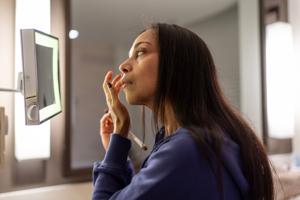As Halloween approaches, many parents of autistic children are seeking ways to make the holiday enjoyable and manageable. Laura Hansen, an associated clinical professor at the University of Alabama and Director of the UA Autism Spectrum Disorders Clinic, emphasizes the importance of careful planning to help children on the autism spectrum fully engage in Halloween activities.
Hansen, who has dedicated over 15 years to autism research and support, suggests that with the right strategies, autistic children can participate in Halloween festivities just as their peers do. She outlines several tips to ensure that the experience remains fun and low-stress.
Creating a Comfortable Environment
One of Hansen’s key recommendations is to prioritize comfort when selecting a costume. “Picking a costume that’s as comfortable as possible and doesn’t have any sensory processing difficulties, like being itchy or overly hot, is crucial,” she stated. This focus on comfort can significantly enhance the experience for autistic children, who may be sensitive to certain fabrics or temperatures.
Hansen also advises parents to prepare their children for what to expect during Halloween events. “How do you talk to someone about getting candy?” she asks, highlighting the importance of communication. Parents can role-play scenarios or discuss social cues to help children navigate interactions during trick-or-treating.
Planning for Flexibility and Support
In addition to costume considerations, Hansen stresses the need for flexibility. It is vital for parents to ensure that their children have an “escape route” should they feel overwhelmed. This could mean having a plan in place for a quick exit or a designated adult who can take them home if needed.
“Making sure that they know what to expect out of whatever Halloween event they attend can greatly reduce anxiety,” Hansen added. She points out that autistic children may not react in the same way as their peers in social situations, and understanding these differences can help parents provide better support.
By taking these steps, parents can create a more inclusive and enjoyable Halloween experience for their autistic children. Hansen’s advice serves as a valuable resource for families looking to navigate the complexities of the holiday while ensuring that every child can partake in the joy of Halloween festivities.







